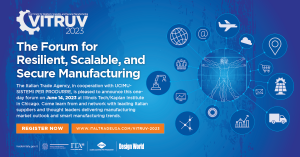The state of the industry is constantly evolving, with new technologies, trends, and challenges emerging every day. From the rise of e-commerce to the impact of artificial intelligence, businesses across all sectors are facing a rapidly changing landscape.
One of the most significant developments in recent years is the growth of e-commerce. With the convenience of online shopping, consumers are increasingly turning to the internet to make their purchases. This has led to a surge in demand for logistics and delivery services, as companies strive to meet the expectations of their customers.
However, this shift towards e-commerce has also presented challenges for traditional brick-and-mortar retailers. Many have had to adapt their business models to incorporate an online presence, while others have struggled to compete with the convenience and lower prices offered by online retailers. As a result, we have seen a wave of store closures and bankruptcies in the retail industry.
Another major trend shaping the industry is the rise of artificial intelligence (AI). AI has the potential to revolutionize various aspects of business operations, from customer service to supply chain management. For example, chatbots powered by AI can provide instant support to customers, reducing the need for human intervention. AI algorithms can also analyze vast amounts of data to identify patterns and make predictions, helping businesses make more informed decisions.
However, the adoption of AI is not without its challenges. Concerns about data privacy and security have raised ethical questions about the use of AI in business. Additionally, there is a fear that AI could replace human workers, leading to job losses. As the industry continues to explore the potential of AI, it is crucial to strike a balance between technological advancements and human involvement.
Furthermore, sustainability has become a key focus for many businesses in recent years. With growing concerns about climate change and environmental degradation, consumers are increasingly demanding eco-friendly products and services. This has led to a rise in sustainable practices, such as the use of renewable energy, recycling, and reducing waste.
Companies that fail to address sustainability may face reputational damage and lose out on potential customers. On the other hand, those that embrace sustainability can gain a competitive advantage and attract a growing market of environmentally conscious consumers. As a result, we are seeing more businesses incorporating sustainability into their strategies and operations.
The COVID-19 pandemic has also had a profound impact on the industry. Lockdowns and social distancing measures have forced many businesses to close their doors temporarily or permanently. This has particularly affected industries such as travel, hospitality, and entertainment.
However, the pandemic has also accelerated certain trends, such as the shift towards remote work and the reliance on digital technologies. Companies that were quick to adapt to these changes have been able to survive and even thrive during these challenging times.
In conclusion, the state of the industry is constantly evolving, driven by technological advancements, changing consumer preferences, and external factors such as the COVID-19 pandemic. Businesses must stay agile and adapt to these changes to remain competitive. Whether it is embracing e-commerce, harnessing the power of AI, prioritizing sustainability, or navigating the challenges posed by the pandemic, the industry is in a constant state of transformation.

























